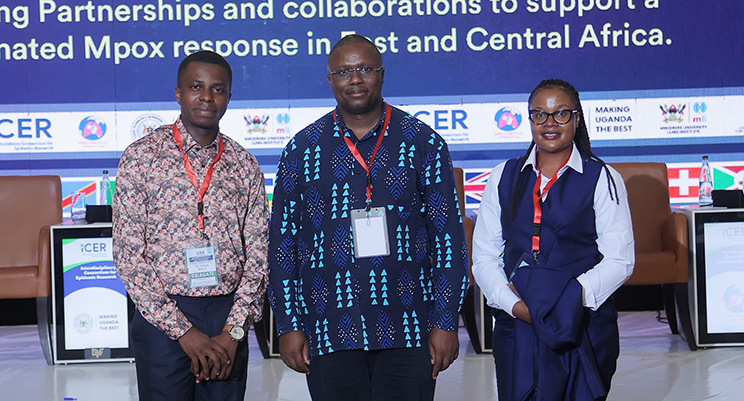KILGORIS project paves the way towards the next generation of HIV-1 immunogens

The KILGORIS project (Masai for ‘Unstable’ to describe the ever-changing nature of HIV-1), led by EDCTP Career Development Fellow Dr Andrew Ekii Obuku (Uganda), is a clinical study that aimed to investigate the ability of the human body to control the amount of HIV-1 early in infection without antiretroviral drugs. HIV-1 attacks the body’s immune system and destroys CD4 cells, which fight infection in the human body. The study monitored trends during the early stages of HIV-1 infection which are characterized by a gradual increase in the amount of free virus in the human body, and the next level, which is characterized by a rapid drop in free virus before the introduction of antiretroviral treatment.
The study identified 11 individuals during acute and early HIV infection by retesting ‘left-over’ plasma using GeneXpert HIV-1 viral load assay from individuals who have been given a negative diagnosis for HIV or inconclusive test result. The acute HIV infection phase was confirmed using 3rd and 4th generation ELISA, Western Blot and Single Genome Amplification and sequencing. The study identified a rare subset of CD8 T cells that express HLA-E whose frequency is inversely correlated with the reduction in HIV viremia in acute HIV infection. Data from this study seeks to feed into on-going and future studies focused on creating the next generation of HIV-1 immunogens.
The project was cofunded by IAVI and supported three Master of Science students, Ronald Nkangi, Zahara Nakitto from Makerere University, and Okello Alfred from Mbarara University. Two of the students have completed their MSc programme and one has already initiated a PhD programme. Dr Obuku is interested in the further characterisation of these rare CD8 T cell subsets to validate the role of these subsets in virological control of HIV viral replication during acute HIV-1 infection.
In addition to working within the ICER consortium, Dr Obuku contributed to the concept and proposal development of the Global Health EDCTP3-funded studies DECIPHER and AFRIVAC MPOX studies. The studies highlight the contribution of his fellowship to train early career scientists in scientific leadership while based in sub-Saharan Africa.
